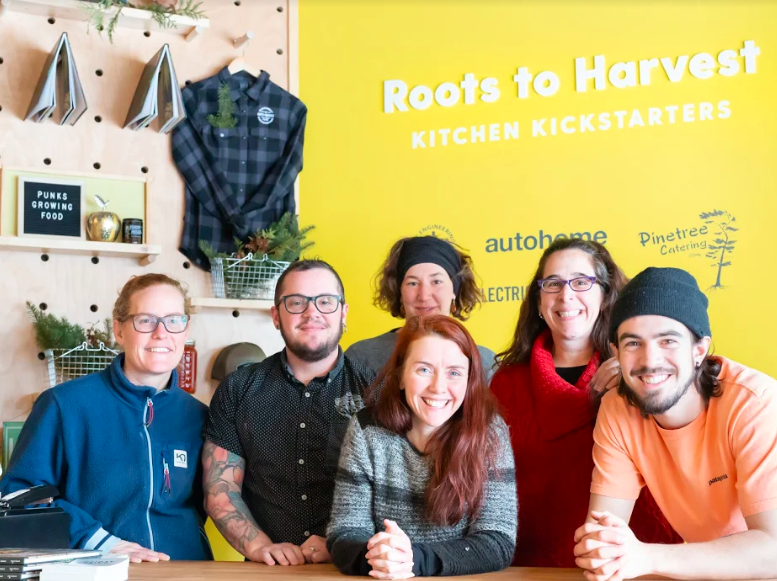THUNDER BAY -- Roots to Harvest has come a long way since it started its second urban garden site on Lillie Street.
The Lillie Street garden was started in spring 2017 in partnership with the Lakehead District School Board and now grows both perennial and annual food crops as well as a seed production garden, year-round greenhouse and community garden spaces for the public to rent.
“Lillie is the biggest site we’ve ever done, 2.25 acres. (The Volunteer Pool site is about 1/3 acre.) What we love is how nested it is in the community,” says executive director Erin Beagle.
“It’s upped our farming game,” she says. In the summer it sells its produce to restaurants as well as the local population, and cans, freezes and dries the surplus for later use. The garden is also a wonderful educational tool.
“Because it’s so central and big and can accommodate so many people, many groups have come; classes, schools, Tbaytel, the Fort William rotary. Western University came to learn about agriculture in the north. It’s a nice host site to showcase so many different things. A large scale that can be scaled up or down.”
In addition to growing food during the summer, Roots to Harvest now runs a variety of programs year-round. One of these, Culture Kitchen, launched in January 2019 and is running again this year. Last year, 10 women from three different Arabic-speaking countries, all newcomers to Canada, participated. The aim of the program is to help people build a sense belonging and economic access.
“We have to recognize that in Thunder Bay, for newcomers coming to Canada, we don’t have ethnic communities that can support employment and language, like a bigger city can,” says Beagle. “Employment and language are tied so hand in hand here. So how do we address that in a way that’s comfortable? Not all women are naturally drawn to food, but often for newcomers, food is the entry way, as we see all across Canada.”
The group got training for seven weeks, including food safety and handling training with the District Health Unit, then they did three, six-week meal purchase programs, where the public could sign up to get takeout meals made by the participants. Since the program ended, some have gone on to start their own catering businesses, such as Royal Aleppo and Petra Catering.
Since Roots to Harvest moved into new offices on 450 Fort William Road in Nov 2017, they have been busy renovating. Getting a commercial kitchen set up has allowed them to expand their programming. Students at Lakehead Adult Education Centre can now earn credits through Cooking for Cred, which runs weekly programs where students cook meals from scratch. Mentors have included local chefs and caterers such as Nikos Mantis (Pinetree Catering) and Allan Rebelo (Bight).
Beagle has been working for Roots to Harvest since its inception in 2007. Started as a project of the food security research network, it was a part time job for the first three years. After the funding ran out, there were two paths - they could close down and move on, or incorporate and see what they can do. They chose to do the latter; they registered as a nonprofit in February 2012 and as a charity in December 2012, and got a grant from the Ontario Trillium Foundation. “And that was the kickoff to what Roots is now,” says Beagle.
Roots to Harvest now employs 11 full time staff, and hired 32 youth for the summer programming last year. They also got a substantial federal grant last year of more than $610,000. The money allows Roots to Harvest to provide wraparound services and fill the needs and gaps of the young people they employ.
The pandemic has put programs on hold until further notice.



